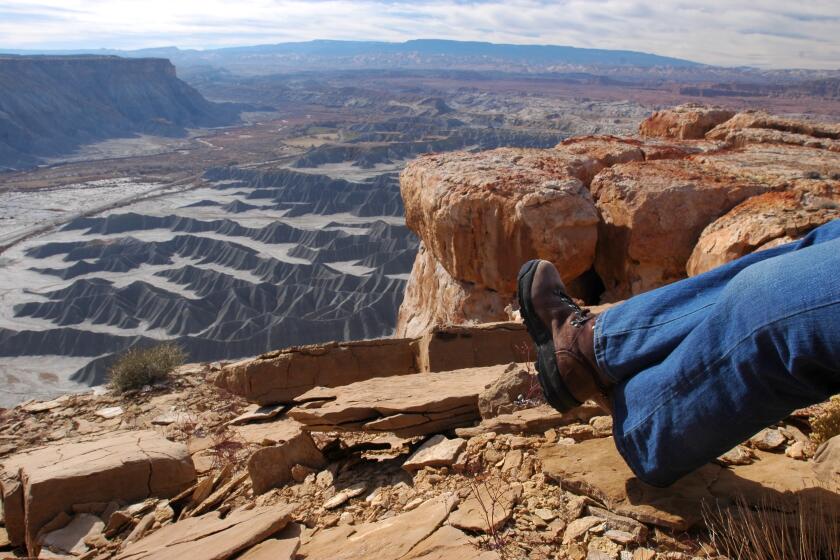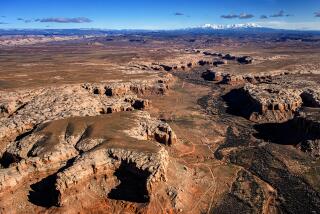Wyoming moves ahead with selling land in Grand Teton National Park to federal government for $100M

- Share via
CHEYENNE, Wyo. — Wyoming officials voted Thursday to proceed with selling a spectacular, pristine piece of state property within Grand Teton National Park to the federal government for $100 million and end decades of threats to sell it to the highest-bidding private developer.
The 3-2 vote by the state Board of Land Commissioners — made up of Gov. Mark Gordon and the other top four state elected officials, all Republicans — puts the square-mile parcel with an unobstructed view of the Teton Range a step closer to becoming part of the park.
The land that has been a bone of contention between Wyoming and federal officials for decades may now finally be on track to sell by the end of this year.
“There’s clearly a right decision to be made. This is a very rare opportunity for you to do the right thing for education in Wyoming,” Wyoming Senate President Ogden Driskill, a Republican, urged the board before the vote.
Trump reduced national monuments before Biden restored them. The Project 2025 blueprint says public lands need to remain open to a wide range of uses.
Conservation and sportsmen’s groups have made similar appeals to keep the property out of private hands even though selling to developers could net the state the highest dollar return.
The state land surrounded by national parkland on all sides has belonged to Wyoming since statehood. However, leasing it for grazing has brought in only a few thousand dollars a year, far below what the state could get from a modest return on investing the proceeds of a sale.
As in other states, particularly in the West, revenue from state lands funds public education.
The two officials voting no said they hoped to strike a better deal under President-elect Donald Trump’s incoming administration, possibly involving a swap for fossil-fuel-rich federal lands elsewhere in the state. One was state Superintendent of Public Instruction Megan Degenfelder, who said she wanted to protect the land but get the best deal possible.
The official nonprofit organization of the National Park Service is set to receive the largest grant in its history from Indianapolis-based foundation Lilly Endowment Inc.
“This is the most valuable piece of property Wyoming has ever had,” Degenfelder said before the vote. ”To me, we can’t sell Wyoming short. I don’t believe that voting it down today or tabling it today, as I prefer, is closing doors.”
For decades, Wyoming governors have threatened to sell the land within Grand Teton to the highest bidder if the federal government wouldn’t buy it. The threats led to on-and-off negotiations and three previous sales of other state land within the park to the federal government totaling $62 million.
The Wyoming Legislature approved the $100-million purchase in the state budget last winter. Under the deal, a federal fund will provide the land’s appraised value of $62 million and privately raised money the rest.
One candidate will greenlight a 21st century sagebrush rebellion. The other will protect the public treasure of Utah’s red rocks, mountains and deserts.
Lawmakers stipulated that the governor could walk away from the deal if a plan by President Biden’s administration to limit oil and gas drilling and other development in a vast area of southwestern Wyoming moves ahead. The plan irks many in Wyoming, which relies on fossil fuels for jobs and revenue.
The U.S. Bureau of Land Management appears set to meet legislators’ requirements by approving a not-so-restrictive plan by the end of this month, state Treasurer Curt Meier said.
“This is the time for us to go forward,” Meier said before voting to approve the sale.
Interior Department officials didn’t immediately return an email seeking comment on the vote and when the resource management plan will get final approval.
Gruver writes for the Associated Press.
More to Read
Sign up for Essential California
The most important California stories and recommendations in your inbox every morning.
You may occasionally receive promotional content from the Los Angeles Times.













